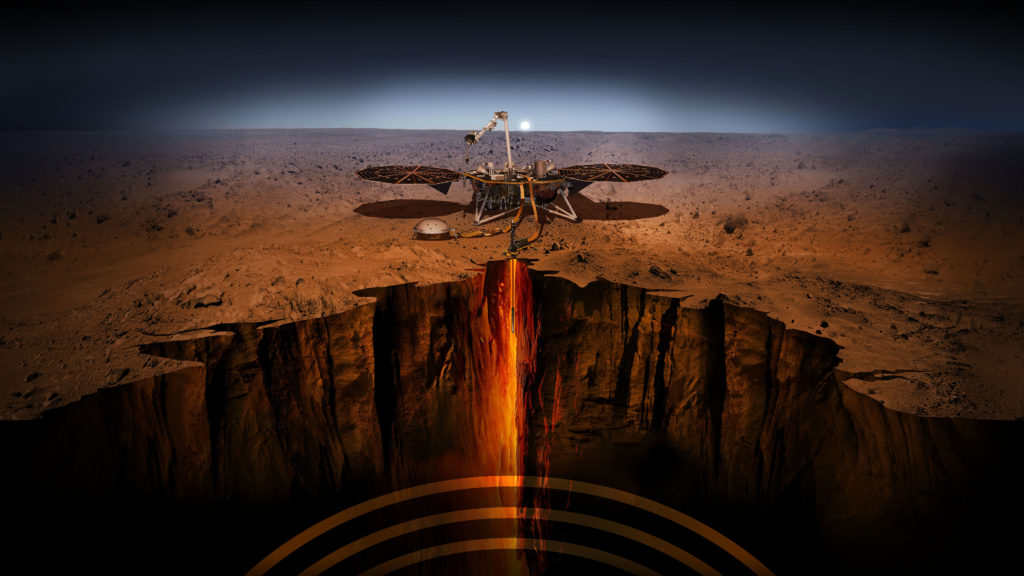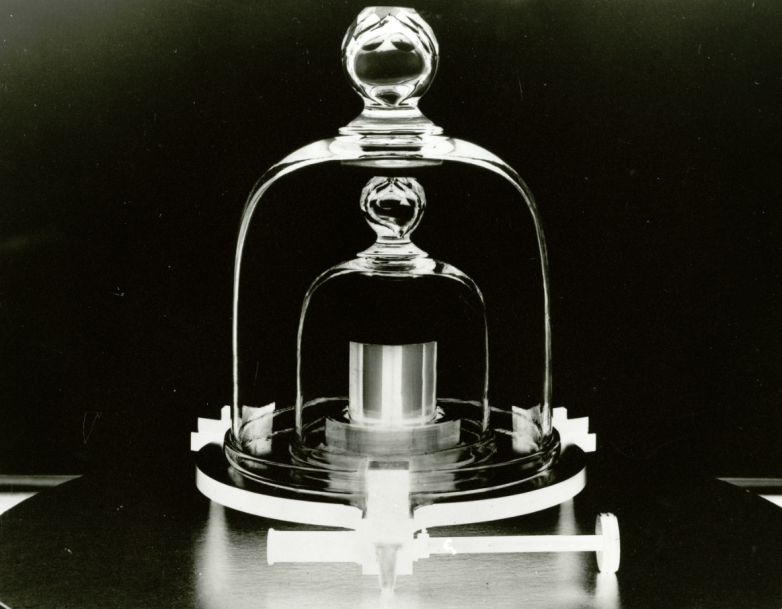
Marsquakes, messages from space, misjudged mass and Macca’s for baldness – 2018 in science was mammothly mind-blowing.
Marsquakes, messages from space, misjudged mass and Macca’s for baldness – 2018 in science was mammothly mind-blowing.The hustle and bustle of the holiday season has well and truly hit. But before you become engulfed in a midnight mad dash to finish your shopping or end of year festive shindigs, let’s take a minute to reflect on what science has given us this past year.
Get comfy, grab the eggnog or, if you’re really keen, start the almighty mission of untangling Christmas lights and read on.
1. We’re mad about Marsquakes
There is no denying it, space is intriguing. Luckily for us, there’s been no shortage of interesting space science this year. Our buddies at NASA kept us on the edge of our seats when they successfully landed the first robotic lander, InSight on Mars. Using a parachute to touchdown on the smooth plains of Elysium Planitia, InSight’s quest is to take a deeper look into the interior of Mars and compare its structure and history to Earth. With the help of seismology, the study of quakes, NASA hopes to answer the big question: how are planets born? Mind blown. Follow the InSight mission.
2. You’ve got mail
Staying in space, how about this cracker to really light your fire. Finding a joke in a bonbon is pretty cool but getting a message from a distant galaxy certainly trumps.
On 22 September, for the first time ever, astronomers traced a ghostly particle (aka neutrino) to its cosmic source solving the century old mystery of where these neutrinos originate. Researchers at the south pole were able to track one cosmic neutrino to a distant blazar, a huge elliptical galaxy with a fast-spinning supermassive black hole at its heart. See how the IceCube observatory is tracking neutrinos.
3. Size does matter
The international measurement community met in France late this year to vote on redefining the kilogram – a unit of mass. A number of other measurements including the mole (the amount of a substance) and the ampere (a unit of electrical current) are based off the definition of a kilogram, so a change to the kilo will change their official measurement as well. From 20 May 2019, the kilogram will be defined not with a physical object, but a rule of physics called the Planck constant. The Planck constant is a measure of how much energy is released in light when atoms move around. Heavy news for the kilogram.

Talk about massive change – the kilogram got a makeover in 2018.
4. A weighty calculation
In May, a global group of scientists calculated how much all life on Earth weighs. Their findings made us feel pretty insignificant. Humans are a puny part of the planet: 0.01% of the global biomass. Plants dominated weighing in at about 7,500 times more than people. Despite making up such a small percentage of the planet’s life, we’re pretty good at ruining it. Since the start of human civilisation we’ve lost half of the world’s plant life and caused the loss of 83 per cent of all wild mammals. An epic reminder of our impact on the planet.
5. We lost a legend
One of the greatest minds of our time, the brilliant theoretical physicist, Stephen Hawking passed away at the age of 76 after a famed life researching everything from black holes and the origins of the universe itself through to the captivating prospect of time travel. A look at a life well lived.
6. McDonalds may help your receding hairline
Ok, so technically, hoovering down that Big Mac isn’t going to magically reverse your balding issues. Nice try though. However scientists in Japan may have found a way to regrow hair follicles using a chemical found in McDonalds fries. The chemical, dimethylpolysiloxane – found in silicone, which is also used in the oil to cook fries was used to grow follicles on the backs on mice, giving researchers hope that this could lead to more successful treatment of hair loss in humans. Look out luscious locks, here we come. Is this the answer to impending baldness?
7. Time for bed
It wouldn’t feel right if we didn’t include yours truly somewhere in this list but we certainly can’t take all the credit for this one. Along with researchers from the Walter and Eliza Hall Institute and Monash University, Cancer Therapeutics CRC, The University of Melbourne, and Peter MacCallum Cancer Centre a new type of anti-cancer drug has been discovered which can put cancer cells into permanent sleep without the harmful side-effects caused by conventional cancer therapies. The new class of drugs means better treatment for cancer patients and stopping the growth of tumours without damaging any cell’s DNA. Find out how we’re putting cancer to bed.
While there has been an abundance of great science this past year, we’re going to have to stop it there. But if you’re anything like us and have a yearning for more, subscribe to our blog to keep up with everything science-y 2019 has to bring.

